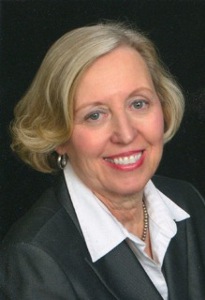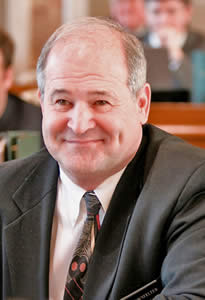
Legislative update from Sen. Pat Pettey, D-6th Dist.
March 26, 2014
In this issue:
• Senate nearing first adjournment
• House releases school finance plan
• Governor signs bills
• Renewable portfolio standards
• Net metering
• Sedgwick County vote blocked
• Suspended license amendment
• Over at the House
• Pat’s thoughts
• Health information
• Education information
Senate nearing first adjournment
Legislators worked all day on the floor Monday through Wednesday, reserving Thursday and Friday for possible committee work.
The extended days are in preparation for the upcoming first adjournment, scheduled for April 4.
After this date, bills that haven’t passed both chambers can no longer be debated although certain bills are exempt from this deadline.
Following a short break, legislators will return for the veto session in late April. At that time, exempt bills, conference reports, and any vetoes by the governor will be considered.
If you have any questions about any of the legislation being considered, feel free to contact my office at 785-296-7375 or stop by my legislative office, located in 125-E of the Topeka Statehouse. My assistant’s name is Jennifer Parson.
House releases school finance plan
Late last week, House Republicans introduced a 59-page bill (HB2773) to address school finance that also addressed other topics related to education including expanding charter schools and establishing tax credits for vouchers.
Shortly after the introduction of the bill, House leadership rejected the bill and said a new bill would be introduced.
This week, House Republicans introduced House Bill 2774. In addition to funding capital outlay and local option budget equalization to comply with the court ruling, the bill seeks to expand innovative districts to not exceed 56 districts, alter the transportation weighting portion of the formula to cut funding, and create alternative teacher licensures that bypass the State Board of Education and do not require any teaching-related coursework.
The House Committee on Appropriations discussed the bill Wednesday and has scheduled a hearing on it for Monday, March 31.
The chair indicated that nothing is off the table and everything will be considered.
This means there could be amendments added to include the expansion of charter schools or establishing tax credits, as we saw in the previous bill.
In other words, just because HB2774 has been introduced does not mean HB2773 or any of its elements are dead.
t set in stone, either. Right now, the proposed amount is $129 million. This figure was provided by the deputy commissioner of the Kansas Department of Education.
The bills introduced by Democrats in the House (House Bill 2768) and Senate (Senate Bill 443) that solely fund equalization have yet to be brought up for discussion in committees.
I am concerned that many of the policy changes proposed in both HB 2773 and HB 2774 have not received hearings or been worked by either House or Senate Committee on Education.
It is for this reason that I do not believe now is the time to include these policy changes. I firmly believe in solely funding equalization, and discussions for policy changes should be reserved for the 2015 session when there is time to thoroughly vet them.
Governor signs bills
• Party swapping The bill that prohibits voters from changing party affiliations between the candidate filing deadline and the date the primary election results are certified has been signed into law by Gov. Brownback. It will go into effect July 1, 2014. The bill passed the Senate on a vote of 27-12 and the House on a vote of 72-49. This bill is just part of the effort to silence the opposition. I voted against it.
• Victim’s notification The governor has also signed into law the bill introduced by my Senate colleague, Sen. Oletha Faust-Goudeau (D-Wichita) that strongly urges the Department of Corrections to notify a victim’s family within 14 days prior to the release of a criminal defendant. The law is known as Adrian Olajuwon Crosby and Dominique Nathaniel Tyree Green’s Law.
Renewable portfolio standards
On a vote of 25-15, the Senate passed a bill that would repeal the Renewable Energy Standards Act. Senate Sub for House Bill 2014 would put an end to the standards that will require Kansas investor-owned utility companies to have at least 20-percent of their peak demand come from renewable sources, such as wind energy, by 2020.
Proponents of the bill argue that with the RPS in place, the cost of utilities has gone up by 22-percent and it impedes a free market in Kansas.
However, the reality is that most of the increase in costs is from the construction of a new coal plant and from renovations made to existing plants to meet new emission standards.
According to a study by the Kansas Corporations Commission, the compliance with the standards only accounts for an increase in rates of 0 to 1.7-percent, or just a fraction of a cent.
Wind energy is inexpensive, and the renewable portfolio standards provide incentives to bring job growth to the state, especially in rural areas.
Repealing the standards also jeopardized agreements made with companies that came to Kansas specifically for the opportunity to utilize renewable energy, including the Mars factory that was recently built in Topeka. I voted against the bill. I am pleased that the House voted against concurring with the Senate thereby killing it for this session.
Net metering
The full Senate debated and passed 39-0, House Bill 2101, the bill on net-metering.
The Senate Utilities Committee reworked the bill; in addition to protecting current customer-generators, the committee work restored some allowance for generation capacity and proposed options such as time-of-use rates and minimum bills for a rate proceeding.
I think a good compromise was reached and I voted for the bill.
Sedgwick County vote blocked
On a vote of 28-12 the Senate approved House Bill 2125, which prohibits Sedgwick County from holding a second public vote on whether to allow slot machines at the race track. I voted against this bill. I believe it is simply political retribution against the owner of the race track who contributed to the campaigns of moderate Republicans and, as a result, silences the will of the people. This bill is repugnant and entirely unnecessary.
Over at the House
• Autism coverage On a vote of 114-3, the House passed the House Bill 2744, which requires insurance companies to provide coverage for autistic children up to the age of 12 starting in 2016.
Autism Speaks was very active in suggesting modifications to the bill. The bill is on General Orders in the Senate. I hope the Senate will concur with the work of the House on HB2744 so that we can start providing necessary insurance coverage to more Kansas children with autism.
We have learned that by including treatment for autistic children in the SHEP (State Health Employee Plan) that the cost is low and affordable at 31cents PMPM. Early intervention with children can make a big difference in cutting lifetime costs and can enable many autistic children to start school and succeed in regular classrooms.
• Health compact A bill that seeks to exempt the state of Kansas from federal health care laws passed the House on a vote of 74-48. House Bill 2553 permits Kansas to join a multi-state compact where member states would retain full authority over health care rules, regulations, and orders within their respective jurisdiction while still receiving federal dollars up to the amount appropriated for the state under the current federal health care law.
This bill would give the state of Kansas the ability to accept federal dollars for Medicare, but privatize it like it has done for Medicaid under KanCare. The bill currently awaits a hearing in the Senate Committee on Federal and State Affairs. I do not support this bill.
• Raffle amendment On a vote of 102-19, the House approved a constitutional amendment that would legalize charity raffles. The proposed amendment would alter Section 3 of Article 15 – which prohibits lotteries with the exception of bingo, betting on dog and horse races, and state-owned and operated lottery – to authorize the Legislature to establish licensing, conduct, and regulation of charitable raffles by nonprofit, religious, charitable, fraternal, educational, and veterans organizations. Sub for SCR 1618 passed the Senate unanimously a few weeks ago. It now goes to the governor’s desk. If signed by the governor, it will be included on the ballot for public vote during the 2014 general election.
Thoughts
In the last two days we have worked over 70 bills on the Senate floor. A lot of them do not reflect less government, but just the opposite.
One bill designated Tylosaurus as the official state marine fossil.
HB 2223 allows home brewers the opportunity to taste and judge their brews in events as well as increasing the annual beer production for microbreweries.
HB 2673 added required training for pharmacy technicians and had regulations touching nearly all who work in the health field.
We passed a bill to add the Bonnie Sharp memorial interchange at I-635 and Metropolitan.
HB 2272 gives the Southeast part of Kansas, close to Oklahoma , to go after a casino but lowers the financial threshold.
I voted favorable for each of these bills and that would be true of most of the work we did. However, with 10 to 15 percent of the bills they were unnecessary . I felt they were retaliation to the federal government , local government or an organization. Politics is not always pretty.
Health information
From the American Heart Association: “People in some communities in Kansas have limited opportunities to make healthy food choices. These communities are referred to as food deserts. There are three times as many supermarkets in wealthy neighborhoods as in poor neighborhoods.”
Education information
The roots of the Kansas State Board of Education are founded in the State Constitution.
• 1861—The first State Constitution Article VI noted the responsibility of the state to provide for the education of its people.
• 1873—The first State Board of Education was created by the Legislature.
• 1915—Legislation created a State Department of Education.
• 1966—Citizens amended the State Constitution, Article VI to provide for a State Board of Education which “shall have general supervision of public schools, educational institutions and all the educational interests of the state, except educational functions delegated by law to the state board of regents.”
A sample of the duties and responsibilities of the Kansas State Board of Education include:
• Determine statewide curricular standards • Establish high school graduation requirements
• License K-12 educators
• Establish state accountability systems
• Implement and administer federal and state programs
• Accredit schools
• Serve as the Board for the State School for the Deaf and the State School for the Blind


